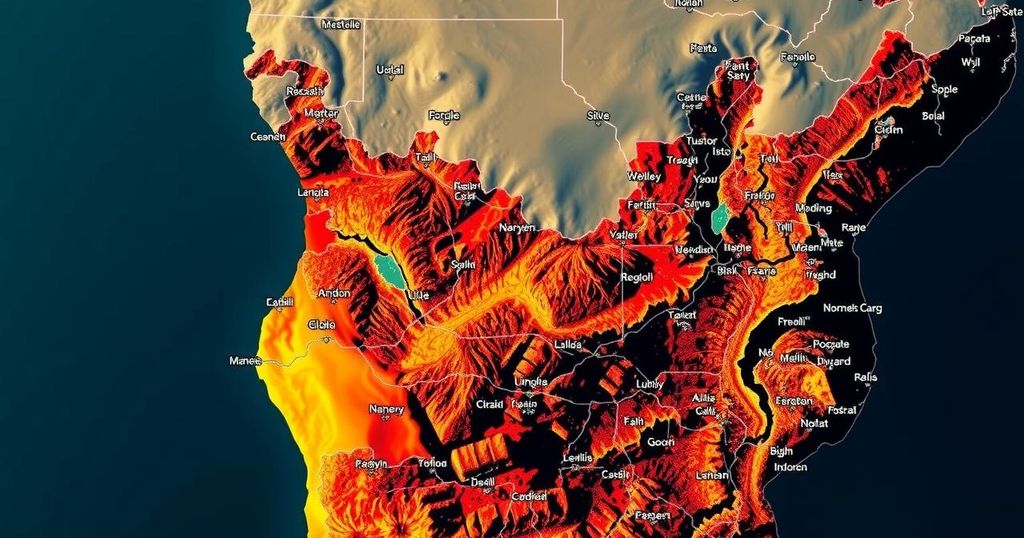Severe Drought Grips Southern Africa: Over 27 Million Affected by Food Insecurity
Southern Africa is experiencing its worst drought in a century, affecting over 27 million people and leading to widespread food insecurity and malnutrition, particularly among children. Countries have declared national disasters as the crisis worsens due to crop failures and livestock losses, compounded by climate change and the El Niño phenomenon.
In Southern Africa, over 27 million individuals are facing severe food insecurity due to what the United Nations refers to as the worst drought in a century. The World Food Programme (WFP) reports that approximately 21 million children are currently suffering from malnutrition as a direct result of this crisis. Countries including Lesotho, Malawi, Namibia, Zambia, and Zimbabwe have declared national disasters in recent months, as the drought has devastated crops and livestock, significantly compromising food supplies. Other countries such as Angola and Mozambique are also experiencing the adverse effects of this environmental calamity. The crisis is anticipated to escalate until the next harvests, expected around March or April of next year. “A historic drought – the worst food crisis yet – has devastated more than 27 million lives across the region,” stated WFP spokesperson Tomson Phiri. He elaborated that conditions will continue to worsen, particularly as October marks the beginning of the lean season in Southern Africa. With crops failing and livestock dying, many families are struggling to secure even a single meal each day. Much of Southern Africa’s population relies on small-scale agriculture, which is heavily dependent on rain for irrigation and sustenance. The El Niño weather phenomenon was identified as a contributing factor to below-average rainfall patterns, exacerbated by the adverse effects of climate change, which have heightened regional temperatures. The drought has led to a staggering 70% loss of harvests in Zambia and an 80% loss in Zimbabwe, according to WFP’s acting regional director for southern Africa, Lola Castro. Moreover, the drought’s impact extends beyond food shortages; it has notably reduced hydropower capacity, resulting in significant electricity outages. In light of the dire circumstances, Namibia and Zimbabwe have authorized wildlife culls, including the culling of elephants, to address the immediate hunger faced by local populations. Experts have indicated that sub-Saharan Africa remains highly susceptible to the impacts of climate change, with its economies and food systems relying heavily on rainfall. The inability of many impoverished nations to implement climate-resiliency strategies only exacerbates this vulnerability. Furthermore, droughts and irregular rainfall induced by climate change are adversely affecting agricultural yield, crop development, flavor, and harvest periods.
The ongoing drought in Southern Africa has reached unprecedented levels, impacting millions of lives and leading to widespread food insecurity. The situation is primarily exacerbated by climate change and the El Niño phenomenon, resulting in significantly reduced rainfall across the region. Many communities rely on rain-fed agriculture, making them susceptible to fluctuations in climate and weather patterns. As a result, crop failures and livestock losses have severe implications for food security, nutrition, and overall livelihoods in the affected regions.
In summary, Southern Africa is grappling with an unprecedented drought, posing significant risks to food security, especially among children. With over 27 million people affected and conditions expected to deteriorate, government responses and international aid will be critical in mitigating the impacts of this humanitarian crisis. The region’s high vulnerability to climate change further complicates recovery efforts and highlights the need for long-term solutions to build resilience against future climatic events.
Original Source: www.aljazeera.com




Post Comment